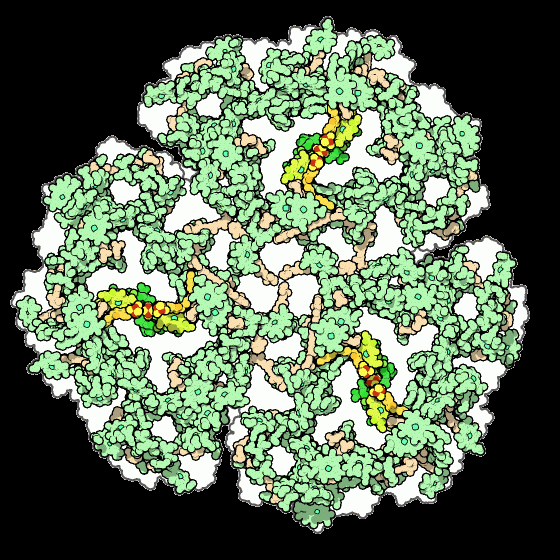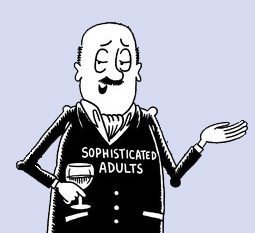Permanently Deleted
hey anybody remember that college scandal not long ago where a bunch of bourgeois got caught falsifying their kids' applications and bribing admissions officers
Professionalization fucking sucks.
I'm a social worker with a Masters, and 90% of my social work education was basically useless. In this field, you actually learn by doing, but you still have to go through 4 years for a Bachelors, 2 years for a Masters (1 if your Bachelors was in social work), and two year-long unpaid internships, all for the purpose of being able to do something that you could honestly do without any of that. It would be so much better to just have supervision requirements (e.g. you have to do your first X years under the supervision of somebody who has Y years of experience- we already have requirements like these for after people get their degrees, and to be clear "supervision" in this context is more like mentorship and it doesn't have to be done with someone who actually has hiring/firing power over you). But there's a reason that the educational requirements are in place even beyond all the things that most of us here would intuitively understand. I'm going to nerd out on social work history a little bit.
When it started, social work was two separate fields that were lumped together. On the one hand, you had organizations like the Charity Organization Society, and on the other you had settlement houses. Skipping over some history (and some genuinely pretty awful origins for both of those things), the COS's system developed into what we now call case management, and the settlement houses evolved into community organizing. The latter especially was really effective at helping communities organize for improved material conditions.
Then, at the turn of the 20th century, some random doctor did a study of social work and he was like "I dunno you guys, doesn't look like a profession to me". And ever since, social work has been scrambling to prove it is a profession by heightening all the many problems of social work at the expense of all of the good things it was doing. And this is ingrained DEEP- at my graduation, the head of my school gave a speech about this and basically ended with "well we really are a profession now so take THAT random doctor". This is how something like 90% of social workers became therapists, despite that not really having any historical roots in the profession- because therapists are easier to point to in order to say "see, we're a profession" and also it's easier for therapists to get paid.
I don't think it's a coincidence that professionalization involved shedding a lot of the more radical work the field was doing. And I mean, I love my therapist colleagues, they do really important work, but the fact that they basicaly ARE the profession now means the profession has lost any sort of focus on any level above the individual, no matter how much we talk about viewing the Person in the Environment or how many ecomaps we draw.
No problem. And I could go into some more detail if you want, this is something that pisses me off.
This is more broad, but for people who were interested in any of what I just said, I would recommend that people read From Poor Law to Welfare State by Walter Trattner and Regulating the Lives of Women by Mimi Abromowitz. They're about the history of social services in general more than social work, but I don't think that's a bad thing. The former is one of the seminal works in the field, the latter is basically "hey, what if we did that but we also talked about women and people of color beyond them being afterthoughts?" The Abromowitz book is also apparently a response to Regulating the Poor by Frances Fox Piven, and I haven't read that but apparently it's also good, if flawed.
Literally every job would be better with an apprenticeship program instead of a degree. You would start off making money right away and be competent and training your own apprentices in 4-5 years. Those coding bootcamps could actually be the first step in an apprenticeship where you get paid to learn and then get placed with a journeyman developer on a project steadily building skills and experience.
I see two issues with that approach, even though it would have a lot of benefits:
- A lot of people aren't good teachers and aren't particularly interested in teaching. While there are plenty of people like that who are already professors, I think the problem would get quite a bit worse if teaching becomes the job of even more people (including many who never got into their field wanting to teach in any capacity).
- Existing universities produce significant value through having research so closely linked to teaching, and though having multiple different disciplines all easily accessible to one another. Again, there are problems with this approach, but a pure apprenticeship model would run the risk of siloing students off the newest work and from adjacent disciplines that might be valuable or interesting.
A mix of university-style teaching and apprenticeships (or paid externships) would probably get the best from both worlds. I think some fields already do this, or at least something close to it.
Also it was written by the same guy who wrote an article in the 70s that called homosexuality a curse
untapped struggle session - titles
personally i think if you demand to be called dr its not good. seems classist and extra schooling doesnt make you better than anyone.i imagine "titles" literally came from aristocracy. the landed gentry would get their own titles, count or duke. but still, this is the society we live in and education isn't exactly meritless. its normal to want recognition for your accomplishments and titles exist for that.
i'm doing a phd (in linguisticz, sry i'm not stem) rn and honestly i can't wait to snobbily force people to call me dr lmao. i'm an immigrant and have a """"foreign"""" name and for most of my life people have responded to me introducing myself with "i'm not even gonna attempt to pronounce that hahahahahhhahaha". still seething over that time somebody told me to marry asap so i can have a normal last name already hahahaahhaha. and i can see that my dad, dr foreignname, is treated way better by random people than my mom, mrs foreignname. honestly can't wait to say "oh you can't pronounce it? :))) no worries, frau doktor is fine :)))"
uncritical support to snobbily dunking on people doing a racist microaggression.
god that fucking sucks, i'm sorry :( my advisor recommended me to german-ise my name, but he was coming from a good place - he had to do the same when he moved to germany as a phd student...
Yup! Except also once I have my math PhD, I'd like to get referred to as Dr just once in my life, because I've worked hard on this degree and will have spent like 7 years learning more math than I thought it was possible to learn. I'd never demand anyone call me doctor, but I sure would love it to happen naturally once or twice.
Do you intend to stay in academia after? Cause it comes a lot more naturally there than in casual / lay conversation.
Unfortunately no. I'd like to, but the job market is a bit tough right now.
extra schooling doesnt make you better than anyone
everyone's equal until you need help from an expert
I couldn't stop laughing about that.
I'm sure Joe is secretly thrilled, because it took center stage over his racist comments and shitty cabinet picks.
it isn’t like it is in physics or something
yeah it's actually important to the preservation of human values under capitalism, but redditors are just technocratic freaks so they don't care about human things haha
Educators and "doctors of education" are two entirely different beasts. One teaches people and passes on knowledge, and the other devises ways to prevent the former from doing that.
I've met a few people who absolutely demand you call them dr, all of them have been pricks. One dude loves the confederacy and teaches at my old high school, I made it a point then and I make it a point now to use his first name. Glad I never took his class I probably would've failed after saying my ancestors killed yours.
Also something I've noticed in college is that professors who don't require you to use dr. are usually much nicer and more caring
I don't think she should be referred to as Dr either, because professionalization to that level is extremely harmful to all the people who work in the same job and the same industry but who do not have the fancy degree and/or professional certification. Professionalization is a tool used to subdivide the working class and pit them against each other and should be done away with.
Professionalization is good (in many areas, at least), credentiaization is what's bad.
The hallmarks of a field that would benefit from professionalization are complexity, severe consequences in case of an error, the need for stricter-than-usual ethical standards because the people in that field are trusted with the above. There's a justification for a high bar to entry, mandated ongoing education, strict licensing requirements, etc.
Credentialization is "people who work in the same job and the same industry but who do not have the fancy degree and/or professional certification." It's you doing the same web design work as your coworker, and doing it better, but your coworker getting ahead because they have a degree you don't. It's a bar to entry without justification.
See my above comment. What you describe as professionalization has been pretty disastrous for social work as a field, even though it absolutely hits the requirements you listed.
Your above comment is insightful and is why I included the "in many areas, at least" caveat. I don't know enough about social work to have a very strong opinion on this, but from what you wrote it sounds like the problem isn't professionalization per se, but professionalization by replacing supervised, experiential learning with a more classroom- and degree-focused curriculum. If social work was professionalized but the education/training requirement looked like this:
It would be so much better to just have supervision requirements (e.g. you have to do your first X years under the supervision of somebody who has Y years of experience- we already have requirements like these for after people get their degrees, and to be clear “supervision” in this context is more like mentorship and it doesn’t have to be done with someone who actually has hiring/firing power over you).
Would the professionalization aspect still be a big problem?
Yes, because it's professionalization that turned the vast majority of social workers into therapists. It's professionalization that removed what radical elements existed in social work.
I mean, I don't want to oversell it, there were other factors that led to that. But I do think that professionalization was one of the most important factors.
I agree with you in concept, but in practice, what you've described as "credentialization" is what the rest of the world describes as "professionalization". I'm not saying people shouldn't be specialized and be experts, but we should not treat professionals as more important workers than non professionals.
in practice, what you’ve described as “credentialization” is what the rest of the world describes as “professionalization”
I think there's a real difference here that is widely recognized. I used to work as an analyst at a large corporation. Nothing in that job really required the knowledge that my undergrad degree gave me, but I wouldn't have gotten the job without a degree because, well, everyone has a degree now so they might as well hire someone who has one. That's credentialization -- you need a degree not because that degree's training is necessary to do the work, but because the field of potential employees is oversaturated with degrees.
But I went back to school and got a grad degree, and the job I do now would be difficult if not impossible without what I learned there. And if I fuck up, someone's life can be ruined. A century or more ago people used to do my job with little to no formal training or experience, but because the job is so complex and mistakes are so consequential we figured out there's real value in having some real hurdles if you want to do this type of work. That's professionalization -- you need a degree because that degree's training is actually extremely valuable for the type of work you're doing, and if you can't do the work competently there's a major risk of people getting hurt.
we should not treat professionals as more important workers than non professionals
I don't think there's a problem with saying that doctors (for instance) are more important workers than some analyst at a large corporation (for instance). The problem is more with folks who say certain workers aren't important at all, or that only people who work certain jobs deserve to live decently, or that people who work other certain jobs deserve to accumulate immense wealth.
Hot take, but the only people who should be called doctors are doctors. Not people with a PHD, but actual medical doctors.
Compromise: MDs get called "doctor" while PHDs get called "Phud"
Counterpoint: I'm going to start a PhD because "dr." is a gender neutral title.
Countercounterpoint: people with a PhD should be called captain, because it's cooler than doctor
Language Nerd Counterpoint: there's a reason Medical Doctor is specified, because 'Doctor' just means 'learned person' and not just medic
is this on jill because like my stance on this is i will not call anyone doctor unless they present me a copy of their doctorate
PMC doesn't exist. There are just working class traitors. The lapdogs if you will. It's still wage labor, just used to oppress and control other members of the working class for the capitalist.
I thought they discovered that with the student loan crisis?
My degree in Adrenachrome is incredibly useful for a sane society and there's many applications for an adrenachrome degree that would help to assist society - especially because of the coronavirus. I have yet to see a single opportunity that pays me a wage tangibly better than the local fast food places/big box stores, so I call it a useless degree.
Edit: realizing that I missed a reference to something. Leaving this here because my posts own 😎











